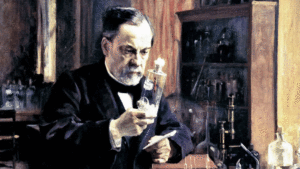Over the decades the game of football has expanded and matured with time. When it was first played most games were played with no changes to the players permitted at all. No substitutes or reserve players were allowed. Howbeit with the progression and professionalism of the game the importance of substitute players became evident, and substitutions were officially added to the Laws of the Game in 1958. Since then the number of substitutions has risen, as well as the number of reserve players allowed to be nominated. It is now common for games to allow a maximum of 5 substitutions. Some competitions allow for an additional substitution to be added when playing extra time. The present rules state that there is a maximum of 3 substitution opportunities, provided to a side during normal time, and an extra opportunity during extra time. Although substitutions can be made during half-time breaks and full-time breaks, these are not counted as substitution opportunities. There is also a provision of an additional substitution beyond whatever limits the match is being played under to be used specifically for a player who has sustained a concussion. A substitute is used when replacing a player with another nominated player because of tiredness, injury or strategy. It is a complete change one for the other. In life we use substitutes in food, many vegetarian meals substitute tofu for meat. Even in school when a teacher is sick and cannot come another substitute teacher will came and take her place and teach her class for the duration of the sickness. One teacher replaces the other, or one food replaces the other. Substitution means to replace one for another.
The Bible speaks a lot about substitution, it is a fundamental truth of the gospel. Man is a sinner; he has broken the laws of the living God. Therefore, God is angry with man and promises to punish him for his sin. God is holy he must keep his promises and punish the sin. However, Christ Jesus came with the primary purpose to satisfy God’s justice. The punishment of man was instead placed on Christ. He became the substitute for sinful man. Jesus Christ was punished instead of man and God’s anger was satisfied. A popular Christian poem says ‘Bearing shame and scoffing rude, in my place condemned he stood, sealed my pardon with his blood: Hallelujah, what a Saviour! Guilty, helpless, lost were we; blameless Lamb of God was he, sacrificed to set us free: Hallelujah, what a Saviour! His substitutionary death on the cross, made provision for the redemption of man from sin. Without Christ being a substitute for man, there would be no gospel. No hope of reconciliation with God the father. No hope of forgiveness of sins. Our sins would be on us forever. Redemption and salvation would be eternally out of our grasp. But because Christ died for man, he can repent and forsake his sins and call on God for forgiveness. Then redemption is possible, forgiveness of sin is real. Reconciliation with God is ours for eternity by faith in the death and resurrection of Jesus Christ. The book of 2 Corinthians chapter 5 verse 21 says ‘For he (God the Father) hath made him (Jesus Christ) to be sin for us, (Christ) who knew no sin; that we might be made the righteousness of God in him.’ On the cross Christ took our place, he was the substitution. The power of the cross is when Christ became sin for man, Christ took the blame for him, and he bore the wrath and punishment for man’s sin. As a result of his substitution, men can stand before God forgiven. You today can claim this forgiveness and have Christ as your substitute.




